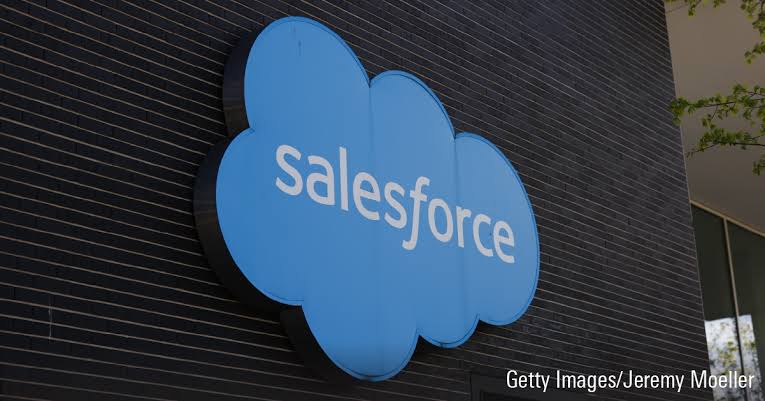When it comes to tech stocks, no one is hotter than Salesforce. The company is known for its Sales Cloud and other cool stuff and for good reason – Salesforce is the largest and most successful CRM company on the planet. As an investor, it’s time to ask yourself: Is Salesforce a buy here?
To answer that question we need to cut through the noise and get to the facts. Salesforce just reported earnings and the numbers are interesting. Revenue growth is still there but valuation and competition are the issues.
In this article we’ll dive into Salesforce’s fundamentals, growth and risks. Whether you’re a beginner investor or just looking for tech stock ideas this should help you make a more informed decision.
2. Company Overview
The Story & Core Business Model of Salesforce in CRM
Salesforce was founded in 1999 and has since grown into one of the largest and most successful tech companies on the planet. The core business is in Customer Relationship Management, or CRM. Salesforce’s mission is to help companies connect with their customers in new and powerful ways, using cloud-based software. Headquartered in San Francisco, Salesforce has changed the way companies sell, market and service customers around the world.
Salesforce is a software-as-a-service, or SaaS, company. The company gives customers access to its software applications over the internet. This cloud-based model allows companies to log in from anywhere in the world and always have access to the latest Salesforce applications. Over time Salesforce has added artificial intelligence, e-commerce and enterprise data analytics to its portfolio of products in addition to its core Sales Cloud application.
Products & Services
Salesforce’s products are designed to help companies connect with their customers and drive revenue growth. The main products are:
- Sales Cloud: Helps companies manage leads, track deals and forecast sales. Sales Cloud is for companies that want to automate and optimize their sales process.
- Service Cloud: Gives companies the tools and technology to deliver personalized and scalable customer support.
- Commerce Cloud: Helps brands create seamless e-commerce experiences on web, mobile and social.
- Marketing Automation: Salesforce’s marketing apps help companies create personalized campaigns and engage with customers in new ways.
- Salesforce Platform: A platform to build custom apps using drag-and-drop tools. Great for companies looking to enhance their digital footprint.
- AI: Salesforce Einstein is the company’s artificial intelligence engine. Einstein powers predictive analytics and automates workflows across Salesforce’s products.
Salesforce also owns Tableau, a data visualization company and Slack, a collaboration platform. And a range of data integration solutions to connect customer systems.
Market Position & Competitive Advantage
Salesforce is one of the largest companies in the global CRM market with a market cap of over $311 billion. The company is considered the leader in customer relationship management and its cloud-based model gives it a big competitive advantage.
Salesforce has a massive partner and developer ecosystem and is highly customizable. The company has a range of products and solutions for specific industries like healthcare, financial services and manufacturing. As a result Salesforce is often at the heart of these businesses.
One of Salesforce’s biggest strengths is its scalability. Whether you’re a small startup or enterprise giant Salesforce’s tools can help you grow and succeed. The company is also a leader in sustainability and business practices which is a big tick in the box for many investors.
3. Financials
Recent Performance
Revenue growth is key to tech investors and Salesforce has delivered it in spades over the last decade. The company’s annualised revenue growth rate is 27.06% which is impressive for a growth stock. Salesforce is a leader in CRM and its platform and products (Sales Cloud, Service Cloud and Commerce Cloud) are driving this growth.
Salesforce’s latest quarter was good with sales growing on the back of marketing automation and AI. Adjusted earnings are looking better too as management is executing well. But operating margins are a concern as they are being compressed by investments in innovation and global field expansion.
Valuation
If you’re wondering “Is Salesforce stock a buy?” then you need to look at the valuation metrics. Salesforce’s P/E ratio is 55.67 which is way higher than most of its CRM peers. Investors are paying a premium to grow with Salesforce. The PEG ratio which adjusts for growth only reinforces this.
At $311 billion Salesforce is a big player in the tech sector. But when you look at its valuation multiple versus its peers Salesforce is quite expensive. Analysts have a moderate buy or consensus rating on the stock with an average price target of $290. Which is below Salesforce’s last price of $325.26 and means the stock is already pricing in a lot of growth.
Free Cash Flow
One of Salesforce’s strongest financial metrics is its ability to generate cash. Positive free cash flow (FCF) is key for companies as it gives them the fuel to grow, make acquisitions and cover operations without having to borrow. Salesforce has a history of generating cash even in the toughest of economic times. This is a big plus for long term investors.
Salesforce doesn’t pay a dividend but its cash flow could fund a payout in the future. For now the company is reinvesting its earnings in growth areas like e-commerce and AI.
Click here to see the full CRM analysis by the dividend prince.
4. Growth Potential
Market Trends
Salesforce is well placed to benefit from some of the biggest trends in tech. Cloud based solutions are hot and businesses in almost every industry are looking to automate and optimise. Salesforce’s platform is a leader in CRM and its products are core to businesses in highly regulated industries like financial services, healthcare and e-commerce.
Artificial intelligence is the second megatrend benefiting Salesforce. Companies are rushing to implement AI to automate workflows, analyse data and provide personalisation to customers. Salesforce’s Einstein AI engine is built into many of its products including Sales Cloud, Commerce Cloud and Service Cloud. This gives the company a big competitive advantage as customers can get actionable insights and automation on demand.
Future
The future looks good for Salesforce and the company is well set for long term growth. Salesforce is innovating and expanding into new areas including marketing automation and AI. New additions like the new Sales Cloud and Einstein analytics are designed to help customers sell more and get ahead of the competition. The company’s commitment to sustainability and business practices is a big tick too.
Salesforce is also investing heavily in international growth. Emerging markets are ready for cloud and Salesforce is well placed to take a bigger share of those markets. Plus the company’s partnerships with large enterprises and strategic acquisitions like Slack and Tableau will provide solutions for businesses of all sizes.
Management’s growth strategy is clear and they are focused on long term investments, customers and innovation which is exactly what the industry wants. Salesforce is a leader for good reasons and there’s no reason why it can’t continue to lead.
Management’s Vision
Salesforce’s management is customer focused and helping companies connect with their own customers. CEO Marc Benioff often talks about innovation with a purpose and using Salesforce’s products to drive business success while creating positive social and environmental impact. This is music to investors’ ears and builds long term trust in the Salesforce brand.
This year looks good for Salesforce and analysts are expecting steady revenue growth with stable margins. At $311 billion Salesforce is a big cap stock with plenty of room to grow. While valuation is a concern analysts have a moderate buy or strong buy rating on the stock with an average price target that implies upside from here.
Salesforce’s ability to go after hot areas like AI, cloud services and e-commerce is a big advantage in the CRM space. But there are risks and investors need to be careful before buying into Salesforce’s growth.
5. Risks and Challenges
There are several risks and challenges to consider before buying Salesforce stock. While Salesforce is a leader in CRM and tech, these risks are real and need caution.
Competition
Salesforce is in a very crowded and competitive market. Microsoft Dynamics, HubSpot and other CRM players are major threats to Salesforce’s growth. Microsoft’s ecosystem is massive and its Office suite and Azure cloud platform are deeply integrated. HubSpot is a popular choice for small to mid-sized businesses with its user friendly marketing automation and sales tools.
More worrying is the emergence of niche players with industry specific solutions. Salesforce’s one size fits all approach is no longer working and it will be hard for them to continue to lead the CRM space. As the market grows competitors are catching up with AI and e-commerce tools that are similar to Salesforce’s platform. This is a big problem as Salesforce’s strengths are in CRM and platform. If competitors can offer similar or better solutions with AI and e-commerce Salesforce’s growth and margins could be at risk.
Macroeconomic Factors
The broader economy is a big risk. Interest rate hikes, inflation and recessions cause companies to freeze tech spending. Salesforce’s products – Sales Cloud, Service Cloud and Commerce Cloud – are bought on corporate budgets. If businesses cut back on spending Salesforce’s revenue growth could slow.
Market volatility is also a concern. Salesforce’s high P/E (55.67) makes it sensitive to sell offs during market corrections. Investors flee growth stocks and pile into value and dividend plays during market downturns. If Salesforce’s price goes below its dystopian target price of $275 it will be a tough stock to own in the near term. Even if it doesn’t Salesforce could get knocked down to more reasonable levels. If businesses go into recession or slowdown Salesforce’s sales will be impacted across the board.
Internal Risks
There are several internal risks to consider. Salesforce’s heavy reliance on acquisitions (Slack and Tableau) is a risk. They must execute these integrations perfectly as they could add meaningful revenue and users to the platform. Poor integration will be a waste of resources and opportunities.
Another risk is talent retention and management stability. The tech industry is super competitive and Salesforce must work hard to retain top talent. Their ability to innovate in areas like AI and cloud services depends on access to the best minds in the business. Changes in management or a decline in employee morale will impact product development and overall performance.
Scaling is also a big risk. As Salesforce goes after new markets and industries it must deliver on its promises. If the company’s infrastructure and solutions can’t meet the needs of its diverse customer base it will lead to unhappy customers, lost revenue and damage to its brand.
6. Analyst Views
Wall Street analysts have mixed but mostly positive views on Salesforce stock. Their views are important to consider as they’re based on the company’s performance in the tech sector, its position in CRM and long term growth.
Consensus Ratings
- Salesforce has a moderate buy rating, analysts think it’s a strong player in the CRM space with steady revenue growth. A few analysts have a strong buy rating and many are highlighting innovation, cloud services and marketing automation as reasons to buy.
Price Target and Valuation
Salesforce’s average price target is around $290 which is below its last reported price of $325.26. So the stock is overvalued in the short term and investors should be prepared for a pullback. Salesforce’s P/E is very high at 55.67 and analysts are lukewarm on the stock compared to its peers in the tech sector. But Salesforce’s PEG is more reasonable and its sales growth potential is very high.
Is Salesforce a buy? Analysts say yes if you’re a growth investor looking for a leader in cloud software, AI and marketing automation. But Salesforce is overvalued so it’s not a good fit for value investors. If you’re looking for a growth story with plenty of room to run then Salesforce’s story might be for you. But if you’re looking for value then you should look elsewhere.
7. Is Salesforce a Buy?
Is Salesforce stock a buy? You should weigh the pros and cons before investing in Salesforce, Inc. Salesforce is a leader in the tech sector and its position in CRM is very strong. But is Salesforce stock a buy at current prices? Let’s take a look.
Pros
- High Growth
Salesforce’s revenue growth is good and its last quarterly report card shows steady sales growth over time. Salesforce is a leader in AI and its Einstein AI engine is embedded in many of its products. As AI adoption grows across industries Salesforce will benefit. - Market Position
Salesforce is the clear leader in CRM and its position won’t be threatened in the next few years. Businesses need marketing automation, customer insights and sales management solutions and Salesforce has a platform to connect with customers. - Broad Product Portfolio
Salesforce’s products go far beyond CRM with e-commerce, data integration and analytics solutions. Its investments in Commerce Cloud and global markets are paying off and the company is set up for long term growth. - Cash Flow
Salesforce’s cash flow is solid and the company can reinvest in growth initiatives like AI and global field expansion.
Cons
- Valuation
Salesforce’s biggest problem is its rich valuation with a P/E of 55.67 and PEG that’s moderately high. This is a big turn off for value investors. - Competition
Salesforce is in a competitive space with Microsoft Dynamics and HubSpot. Both are catching up to Salesforce with AI powered tools which could threaten its leadership position over time. - Macroeconomic Risks
Salesforce is not immune to market risks. Downturns, interest rate hikes and global uncertainties can cause stock prices to fall.
8. Conclusion
Salesforce is a leader in tech and its position in CRM is very strong. The Salesforce platform is a game changer for businesses and its innovations in AI, marketing automation and e-commerce are paying off.
But the dividendprince rating of 5.19/10 means Salesforce is not perfect. It has great revenue growth, brand strength and wide moat but is expensive with P/E over 55, doesn’t pay dividend and has mediocre ROE and ROA. The price target and valuation metrics suggest it’s overvalued for many investors.
For long term growth and exposure to the CRM space Salesforce offers a lot but for dividend or value investors it’s a no go due to no dividend and high valuation.
Whether you buy Salesforce stock or not depends on your investment strategy. If you want innovation, cash flow and tech sector dominance then Salesforce might be for you. If you need immediate value or income from your investments then you need to think twice. Always consider your financial goals and risk tolerance.
Disclaimer: This analysis is based on current data and should not be considered as financial advice. Always conduct your own research and consider consulting with a financial advisor before making investment decisions.










